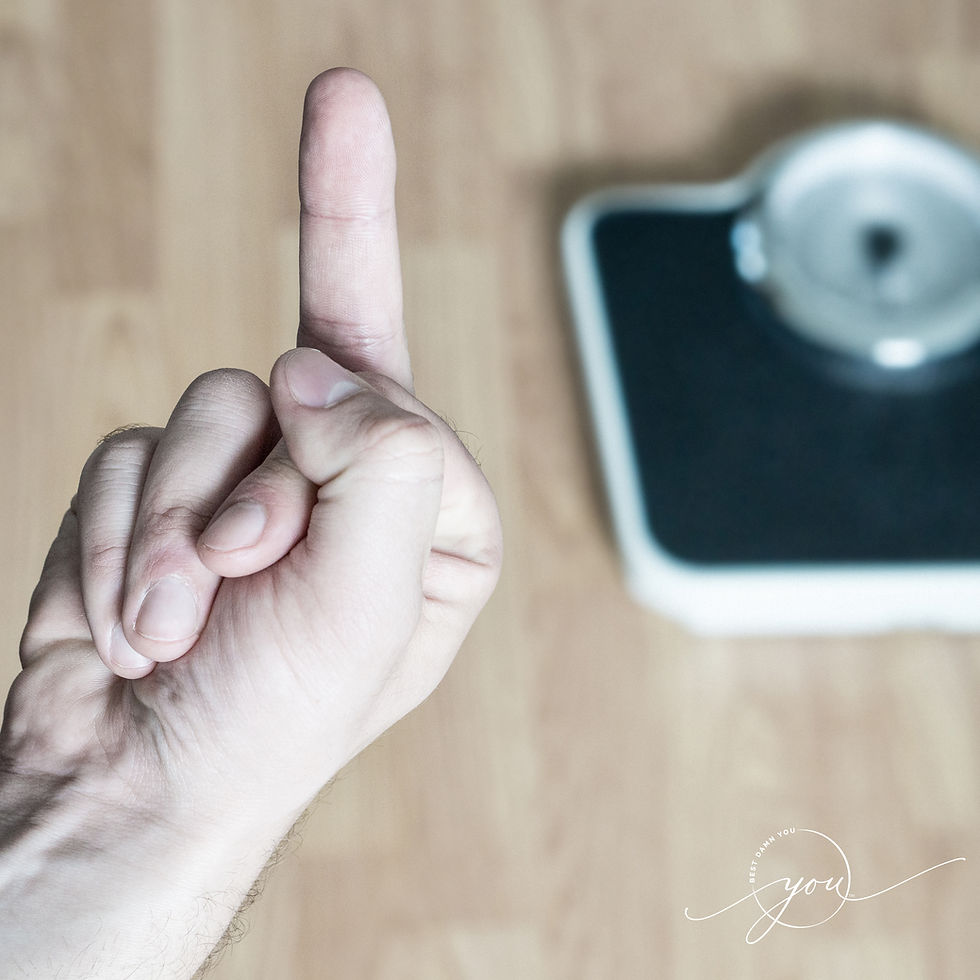"I'm Fine"
- Kimberly Mahr
- Feb 27, 2020
- 3 min read
Updated: Jan 20, 2022
One of the deadliest lies of eating disorders is that ED often tells you, “You’re fine.”
No matter that trusted and loved people in your life say how worried they are.
No matter how much of life you're missing out on because of preoccupation with food, body image, tracking, or control.
No matter the physical and psychological evidence that you’re not "you" anymore.
No matter that you can't walk a half flight of stairs, or that you have so much anxiety that you can barely make it to work.
No matter that your hair is thinning, your teeth are rotting, or you're experiencing breathing or heart irregularities.
No matter that you're snappish with or distant from the people you love.
ED will tell you "Hey, you're still getting passing grades in school," or "but listen to all the compliments or 'looks' you get from others," or "you don't look sick... you've seen sicker looking people." No matter any of this, the eating disorder voice whispers convincingly, cruelly, “You’re fine. They're all wrong. There’s no need to let up on your rules. But, you can do better at this eating disorder stuff, you slacker, so tomorrow we're going tighten up a little more."

ED will tell you that if you can just work a little more diligently in your disorder, you will finally feel like you've won: you'll finally feel good enough at something. But sadly, all that you will win is more shame, more isolation, more physical deterioration, and then the ultimate prize, death.
"I'm fine" is the hallmark of denial, and this denial is one of the greatest barriers to seeking help, changing behaviors, and confronting coping mechanisms. It is the single biggest threat to recovery on all fronts, and the one piece that most frustrates loved ones and treatment team professionals.
But we must break through this denial because eating disorders are deadly serious: they have the second highest mortality rate of all mental health disorders, surpassed only by opioid addiction. (Chesney, E., Goodwin, G. M., & Fazel, S. (2014). Risks of all-cause and suicide mortality in mental disorders: a meta-review. World Psychiatry, 13(2), 153-160.)
When you're stuck in the fun house room of mirrors that is an eating disorder, it is important to question everything, as everything is not as it appears and if you can count on anything within an eating disorder, it's that ED distorts every aspect of reality.
So, how do you combat denial when you see it happening in someone you love?
Provide objective medical proof of the consequences of eating disorders. A good place to start may be to review this list of health consequences.
Crush myths. ED is a powerful negotiator, even in the face of facts, but it's critical to debunk misinformation and myths at every turn. Check out this list of common myths commonly associated with eating disorders.
Speak out, again and again and again. People with eating disorders are often afraid to ask for help. Some are struggling just as much as you are to find a way to start a conversation about their problem, while others have such low self-esteem they simply don’t feel that they deserve any help. If you have concerns, speak them, lovingly, and keep reaching out.
Help them get professional help. Professionals who specialize in the treatment of eating disorders are well versed in helping elicit motivation, insight and to help our clients uncover and unpack the subjective meanings and function of the illness.
Seek support for yourself. If you love someone with an eating disorder, it can be frustrating, scary, and emotionally draining. Their resistance and denial is how the disease keeps a toehold in their lives, and fighting it can exhaust everyone around the individual with the disease. Look for peer support groups in your area, or consider enlisting the support of your own qualified therapist to help you take care of yourself while you continue to support your loved-one.




Comments